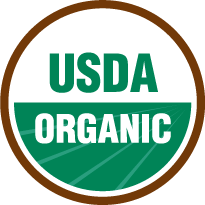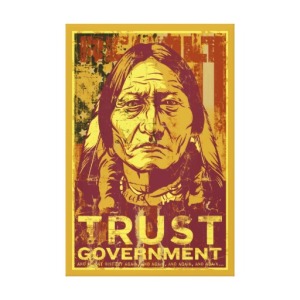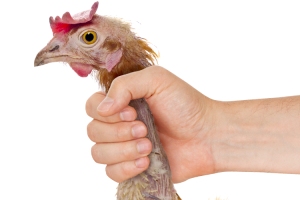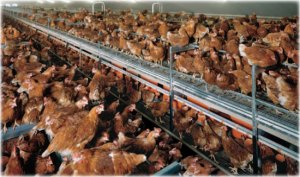Four Reasons Sylvanaqua isn’t Certified Organic
“Are you organic” is probably the most common question we get about our farm. The term “organic” has become quite loaded, instantly associated with sustainable crops, hand-picked produce, humanely-treated animals, and all that agriculture is supposed to be. Our farm easily meets the criteria for organic certification, so why don’t we just get it already?
1. It’s expensive.
Here’s something to help you sleep at night: the federal government subsidizes (with your tax dollars) farms that destroy soil, apply pesticides, genetically modify crops, brutalize animals, and poison your body. But they require organic farmers to pay in order to market their products as USDA Organic. So one big reason that Sylvanaqua and other natural farms don’t certify organic: Spite.
Organic certification isn’t actually carried out by the USDA. It’s performed by an army of “certified certifiers” recruited by the government. These companies charge, on the low end, $700 per year to certify small farms and yes, you have to re-certify every single year. The initial certification will take somewhere in the neighborhood of three or four months, with inspectors visiting, calling incessantly, and generally turning your life into a giant pain in the butt. All this so you can market your sustainable, healthy products in the most ironic way possible.

Your healthy sustainable food: certified by the same body that’s literally paying people to develop corn that causes cancer in absolutely everything.
We easily meet standards for 100% Organic or Organic certification (more on this distinction shortly). We understand that $700/year isn’t all the money in the world. It’s less than $60 a month. We could easily afford it. But like we said before… spite.
2. It’s confusing.
Organic labeling isn’t straightforward at all. USDA certified food can be labeled as “100% Organic”, “Organic”, “Made with Organic Ingredients”, and “Ingredient Panel Only.” This is what happens when people outsource responsibility for their well-being to the Federal government.
The designations reflect the amount of organic ingredients present in the food:
- If it’s made with 100% organic ingredients, it gets the 100% designation and can use the USDA Certified label.
- If it’s made with 95 – 99% organic ingredients, it gets the regular Organic designation and can use the USDA Certified logo.
- If it’s made with 70 – 94% organic ingredients, it get the “Made with Organic Ingredients” designation and may not use the USDA Certified logo.
- If it’s made with 1 – 69% organic ingredients, “organic” can only be used on the ingredients label.
How they determine the percentage of ingredients? I have no idea. Maybe it’s weight. Maybe it’s volume. Maybe it’s the ratio of midi-chlorians to corn. I have no idea; the point is, it’s misleading. People don’t think of “organic” as just a list of ingredients; they think of it as the wholesome product of a small family farm stewarded by a smiling guy with a straw hat who feeds the chickens ice water when it gets too hot outside (like we do). The result: someone buys a 100% organic chicken thinking that 100% covers humane treatment and an animal that spent its 8 weeks in pasture and sunlight. But in reality…
3. Factory farms are taking advantage of it.
The big factory farms are well aware of the buying public’s blind trust in the organic label. And make no mistake, they are taking that trust by the neck and wringing every bit of profit they can out of it, spirit-of-the-label be damned.
The realm of organic meat and eggs is where the big producers are selling their omitted-truths most aggressively, using terms like “free-range”, “cage-free”, and “pasture raised” in ways that are outrageously disingenuous. “Free-range” means that birds “have access” to the outdoors, though they are managed in a way that ensures they never go outside. “Cage-free” means the birds aren’t in cages, but doesn’t mean they aren’t still packed eyeball-to-eyeball in a confinement house. Neither designation spares animals from debeaking and other depredations on their bodies and instincts. And “pasture-raised” means that, at some point, the animal was on pasture. Whether or not it was finished in a feedlot or confinement house… good luck finding out.
Let’s also not forget that the leadership ranks of the USDA – the people developing and enforcing these regulations – are peppered with former executives from big-agriculture firms like Monsanto, Cargill, and ConAgra. This is the reason it’s possible for large companies to tweak their industrial operations ever so slightly to meet organic requirements (e.g. installing a small door on a confinement house to provide “outdoor access” for free-range hens), and make up for the small expense with the larger margins drawn by organic food. It’s also the reason that convenient little exceptions exist for the benefit of the big boys – like the exception for Marek’s and Coccidiosis vaccinations in chickens.
In sum, another big reason Sylvanaqua doesn’t do the organic label is that it’s been polluted and co-opted by people who profit from everything that is wrong with agriculture.
4. It’s a (crappy) substitute for knowing your farmer
The expense, the confusion, and the misappropriation of the organic label are all very good reasons we don’t use it, but there’s one reason that stands head and shoulders above all these: We don’t need it.
At its core, the USDA Certified Organic label is nothing more than a poor substitute for trust. We’ve become wary of GMO, factory farms, pesticides, and soil mining, so we’ve entrusted the government to create a covenant between Us the Consumer and Agriculture the Producer that protects us from these things. That’s right! We’re trusting the same government that’s led by former executives of and attorneys for the very companies we’re seeking protection from…
 At Sylvanaqua, we don’t hide behind government certifications. We establish trust by:
At Sylvanaqua, we don’t hide behind government certifications. We establish trust by:
- Selling food only to people we’ve looked in the eye
- Offering incentives to folks who come and buy their food right on the farm
- Encouraging people to visit the farm, inspect our methods themselves, and spend some time with their hands in the soil and on our animals
When people have met us, seen us rotate our animals on pasture, helped us unleash ladybugs and hens on a bug-infested crop bed, turned compost with us, or watched Chris put down tobacco and send up smoke when a chick dies… they don’t need the stinkin’ organic label. There is no substitute for the trust that comes from knowing exactly where your food comes from.


